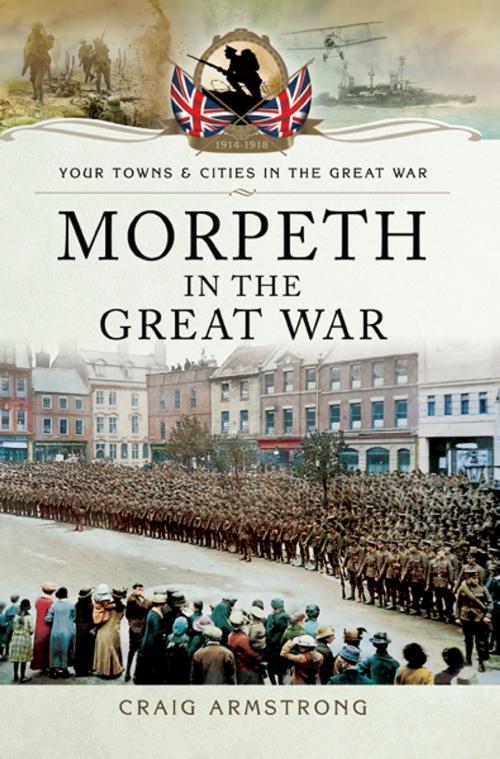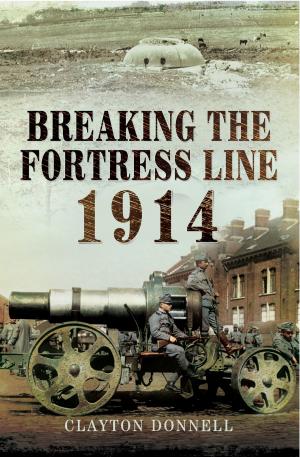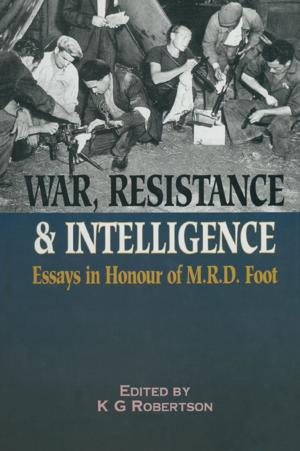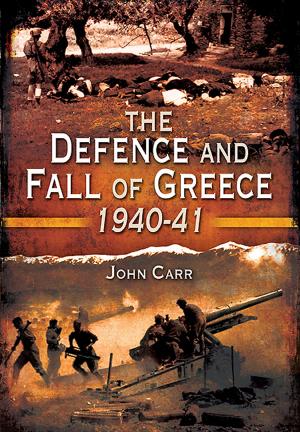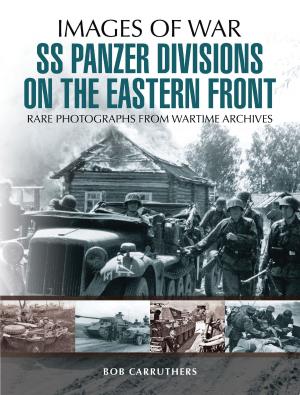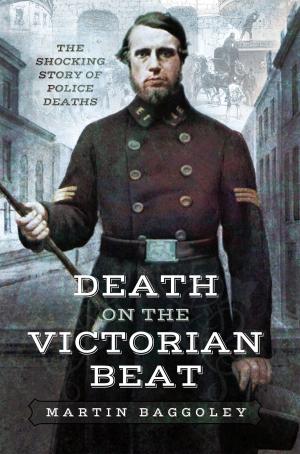| Author: | Craig Armstrong | ISBN: | 9781473866287 |
| Publisher: | Pen and Sword | Publication: | July 31, 2016 |
| Imprint: | Pen and Sword Military | Language: | English |
| Author: | Craig Armstrong |
| ISBN: | 9781473866287 |
| Publisher: | Pen and Sword |
| Publication: | July 31, 2016 |
| Imprint: | Pen and Sword Military |
| Language: | English |
Morpeth played a key role in Northumberland's war effort. As a market town and the seat of government of the county authority, the town was significant in the coordination of Northumberland’s war effort. With a wide rural hinterland, it played a huge part in the production and dispersal of vital food. The town also occupied a position on the fringes of the Northumberland coal district, and many of the men and businesses of Morpeth were engaged in the equally vital work of mining.
The town shared a proud tradition of military service with the wider region, reflected in the huge numbers of Morpeth men and women who came forward for service in the military or in roles such as nursing. It was a recruitment centre, with its own unit of the 1/7th (Territorial) battalion, Northumberland Fusiliers.
For many of those left behind in Morpeth the war was a time of fear and hardship. This book includes accounts of the struggles that many families faced in coping with wartime policies, severe shortages, rising wartime prices, longer working hours and endless worry, sometimes in the face of accusations of drunkenness or idleness from the authorities and unfair criticism of the rural districts’ recruiting record.
Despite the hardships, Morpethians continued to provide incredible charitable support right up until the end of the war, in addition to their work efforts. These momentous efforts are explained throughout this book, which is a poignant testimony to the bravery, self-sacrifice and determination of the people of Morpeth during the Great War.
Morpeth played a key role in Northumberland's war effort. As a market town and the seat of government of the county authority, the town was significant in the coordination of Northumberland’s war effort. With a wide rural hinterland, it played a huge part in the production and dispersal of vital food. The town also occupied a position on the fringes of the Northumberland coal district, and many of the men and businesses of Morpeth were engaged in the equally vital work of mining.
The town shared a proud tradition of military service with the wider region, reflected in the huge numbers of Morpeth men and women who came forward for service in the military or in roles such as nursing. It was a recruitment centre, with its own unit of the 1/7th (Territorial) battalion, Northumberland Fusiliers.
For many of those left behind in Morpeth the war was a time of fear and hardship. This book includes accounts of the struggles that many families faced in coping with wartime policies, severe shortages, rising wartime prices, longer working hours and endless worry, sometimes in the face of accusations of drunkenness or idleness from the authorities and unfair criticism of the rural districts’ recruiting record.
Despite the hardships, Morpethians continued to provide incredible charitable support right up until the end of the war, in addition to their work efforts. These momentous efforts are explained throughout this book, which is a poignant testimony to the bravery, self-sacrifice and determination of the people of Morpeth during the Great War.
